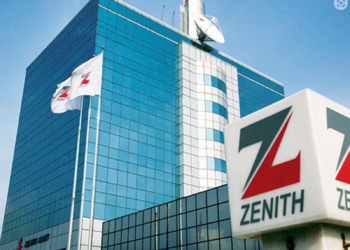Nairametrics| The Financial Stability Report released by the Central Bank of Nigeria for December 2016 revealed that three banks in the country failed a Capital Adequacy Ratio (CAR) test in the event of a default in inter-bank lending. Inter-bank lending is borrowing between two banks. Two of the banks were Systemically Important Banks (SIBs). However, none of the banks involved were mentioned in the report.
SIBs are those classified as too big to fail by the CBN. They include First Bank, Zenith Bank, GTBank, Access Bank, UBA, Skye Bank and Diamond Bank. Of the SIBs, Skye Bank, Diamond and First Bank are yet to release financial statements for the year ended December 2016.
CAR is the ratio of a banks capital to loan exposure. It is also known as Capital to Risk Assets Ratio (CRAR). A fall in the adequacy ratio means that the affected banks may have difficulty in meeting short term needs. The CAR for commercial banks in the country is set at 10% for national banks, 15% for banks with international subsidiaries and 16% for SIBs. The deficient banks will thus be required to raise extra capital.
The report also revealed that smaller banks in the country were more exposed to a risk of default in the oil and gas sector, and that the banking industry as a whole would fall below CAR requirements if there was a 200% spike in non performing loans (NPLs).
Though the CBN stated in the report that the banking industry was safe and sound, the industry had a very challenging year 2016. The economic recession, drop in crude oil prices as well as the looming power sector crisis left banks in the country exposed on several fronts. Some analysts are of the opinion that a newer version of AMCON (or AMCON 2) should be set up to take off bad loans from the banks. Similar stress tests conducted by erstwhile CBN governor Sanusi Lamido Sanusi led to the takeover of five banks by the CBN and creation of AMCON. Other banks were asked to shore up their capital base.









.gif)







Why not mention the name of the banks? This lack of transparency, speaking in proverbs and dealing in shadows is what makes Nigeria maddening and uninvestable for investors, both local and foreign. Don’t those who have invested in the businesses have a right to know what the status of their investments are?!! Don’t shareholders have a right to know what is happening in their businesses?!! Now all banks will be eyed with suspicion affecting their credibility and the credibility of the system as a whole. Why can’t this CBN get it right the first time for once?!! This is terrible!